Informed Consent at the Instituto Nacional de Cancerología (Colombia)
Keywords:
Bioethics, informed consent, medical oncology, ColombiaAbstract
Objective: To examine the theoretcial, ethical and legal presuppositions of informed consent (IC) at the National Cancer Institute of Colombia (INC).
Materials and methods: A qualitative hermeneutic phenomenological study was performed. Eleven interviews were conducted with physicians from surgery, oncology, radiotherapy and palliative care; six with nurses, and two with social workers. Twenty-five patients with subsidized or workers´ insurance were interviewed. Theoretic saturation was achieved. Focus groups that included INC residents and patients´ family were formed. Atlas ti software supported content analysis with the following steps: open reading, structural analysis and critical interpretation.
Results: At the INC, a patient´s right to information is recognized; however, this right is not always associated with IC. Three forms of understanding and applying IC were encountered: a) a formal, legal, and regulatory act in which patient´s signature is obtained; b) grants greater patient autonomy, but with impediments; c) a communicative act based on patient deliberation, regardless of educational level.
Conclusions: At the INC, informed consent frequently means a patient signs a document permitting medical treatment. It is necessary to make IC more communicative to improve patient autonomy over his/her body, lifestyle, and social values. Space, time and strategies should be found for the development of autonomy and deliberation for both patients and physicians.
Author Biographies
Luisa Monsalve, Universidad Externado de Colombia
Universidad Externado de Colombia. Bogotá, Colombia.
Carolina Wiesner, Instituto Nacional de Cancerología
Universidad Externado de Colombia. Bogotá, Colombia.
Instituto Nacional de Cancerología. Bogotá, Colombia.
Maria Helena Restrepo, Instituto Nacional de Cancerología
Instituto Nacional de Cancerología. Bogotá, Colombia.
Jorge Iván Herrera, Universidad Externado de Colombia
Universidad Externado de Colombia. Bogotá, Colombia.
References
Stephen P (Editor). Encyclopaedia of Bioethics. 3rd Edition. New York: Macmillan Reference USA; 2004.
Faden RR, Beauchamp TL. Consent and the courts: The emergence of legal doctrine. In: A history and theory of informed consent. New York: Oxford University Press; 1986. p. 114-50.
Simón LP. El consentimiento informado y la participación del enfermo en las relaciones sanitarias. En: Couceiro A (editora). Bioética para clínicos. Madrid: Triacastela; 1999.
Abel FSJ. Bioética: un nuevo concepto y una nueva responsabilidad. Labor Hospitalaria. 1985;17(196):101-11.
Siegler M. La relación médico paciente en la era de la medicina gestionada. En: Limitación de prestaciones sanitarias. Fundación de Ciencias de la Salud. Madrid: Doce calles; 1997. p. 45-64.
Gracia D. Profesión médica, investigación y justicia sanitaria. Bogotá: El Búho; 1998. 194 p.
Bernate-Ochoa F. Deber de información, consentimiento informado y responsabilidad en el ejercicio de la actividad médica [Internet]. Suiza: Universidad de Friburgo. [10 de septiembre del 2008]. Disponible en:http://www.unifr.ch/ddp1/derechopenal/articulos/a_20080521_30.pdf.
Gracia D. La práctica de la medicina. En: Couceiro A. (editora). Bioética para clínicos. Madrid: Triacastela; 1999. p. 95-108.
Gracia D. La tradición jurídica y el criterio de la autonomía: los derechos del paciente. En: Fundamentos de Bioética. Madrid: Eudema; 1989. p. 155-65.
Tealdi JC (Director). Diccionario Latinoamericano de Bioética. Bogotá: UNESCO Universidad Nacional de Colombia, 2008: p. 214-25.
Boladeras M. Bioética. Madrid: Síntesis. 1998.
Sánchez MA. El consentimiento informado: un derecho del enfermo y una forma distinta de tomar las decisiones. Cuadernos del programa regional de bioética. 1996;2:79-92.
Beauchamp TL, Mc Cullough L. Ética médica. Las responsabilidades morales de los médicos. Barcelona: Labor; 1987. 206 p.
República de Colombia. Ley 23 de 1981 (febrero 18) por la cual se dictan normas en materia de ética médica. Bogotá, 1981.
República de Colombia, Ministerio de Salud. Resolución N° 13437. Bogotá, 1991.
República de Colombia. Decreto 3380 de 1981 Por el cual se reglamenta la ley 23 de 1981.
García MF. Ética en el tratamiento de enfermos con cáncer. Cuadernos de bioética. 1998;9 (34):246-65.
Cereijo S, Guadalupe E. Consentimiento informado y el paciente oncológico. Cuadernos de bioética. 1998:9(33):55-66.
Silverman H. The role of emotions in decisional competence, standards of competency and altruistic acts. J Clin Ethics. 1997;8(2):171-5.
Glaser B. Remodeling grounded theory. Forum Qualitative Social Research. 2004;5(2):1-17.
España, Sala de lo Contencioso-Administrativo del Tribunal Superior SSTS 27 de abril 2001. La Ley Juris. 5133 de 2001.
España Sala de lo Contencioso-Administrativo del Tribunal Superior SSTS 29 de mayo 2003. La Ley Juris. 2157 del 2002.
Melina Gattellari, Katie J Voigt, Phyllis N Butow, Martin HN Tattersall. When the treatment goal is not cure: are cancer patients equipped to make informed decisions? J Clin Oncol. 20(2);2002:503-13.
https://doi.org/10.1200/JCO.2002.20.2.503
Herrera-Moreno JI. Formalismo y consentimiento informado. Bogotá: Centro de Estudios sobre Genética y Derecho, Universidad Externado de Colombia; 2007:67.
Back AL, Arnold RM, Baile WF, Tulsky JA, Fryer-Edwards K. Approaching difficult communication tasks in oncology. CA Cancer J Clin. 2005;55(3):164-77.
https://doi.org/10.3322/canjclin.55.3.164
Mitchell JL. Cross-cultural issues in the disclosure of cancer. Cancer Pract. 1998;6(3):153-60.
https://doi.org/10.1046/j.1523-5394.1998.006003153.x
Cortes CC, Nuñez-Olarte JN. Estudios sobre la comunicación del diagnóstico de cáncer en España. Medicina Clínica. 1998;110(19):744-50.
Peiró G Corbellas C, Sánchez PT, Godes M, D'Ambra M, BlascoA. Estudio descriptivo sobre el proceso de comunicar el diagnóstico y el pronóstico en oncología. Psicooncología. 2006;3(1):9-17.
Wiesner C, Cortés C, Pavajeau C, Leal MC, Tovar S. Habitus y trayectorias de riesgo: ejes articuladores en la comunicación educativa para el control del cáncer. El caso de Patio Bonito, Bogotá. Rev Col Cancerol. 2006;10(3):155-69.
Autrey S, Abel J, Blazeby J M, Falk S. What oncologists tell patients about survival benefits of palliative chemotherapy and implications for informed consent: qualitative study. BMJ. 2008(337):a752.
https://doi.org/10.1136/bmj.a752
Medina AM. Representaciones del cáncer en estudiantes de medicina: implicaciones para la práctica y la enseñanza. Rev Salud Pública. 2007;9(3):369-79.
https://doi.org/10.1590/S0124-00642007000300005
Chan Y, Irish JC, Woo SJ, Rotstein LE , Brown DH, Patrick JGJ et al. Patient education and informed consent in head and neck surgery. Arch Otolaryngol Head Neck Surg. 2002;128(11):1269-74.
https://doi.org/10.1001/archotol.128.11.1269
Loge JH, Kaasa S, Hytten K. Disclosing the cancer diagnosis: the patient's experiences. European J Cancer. 1997;33(6):878-82.
https://doi.org/10.1016/S0959-8049(97)00001-4
República de Colombia. Defensoría del Pueblo. Autonomía médica y su relación con la prestación de los servicios de salud. Bogotá: Defensoría del Pueblo; 2007.
How to Cite
Downloads
Downloads
Issue
Section
License
Todos los derechos reservados.



